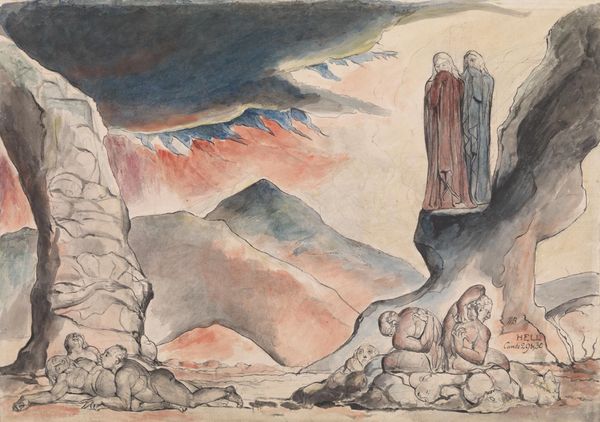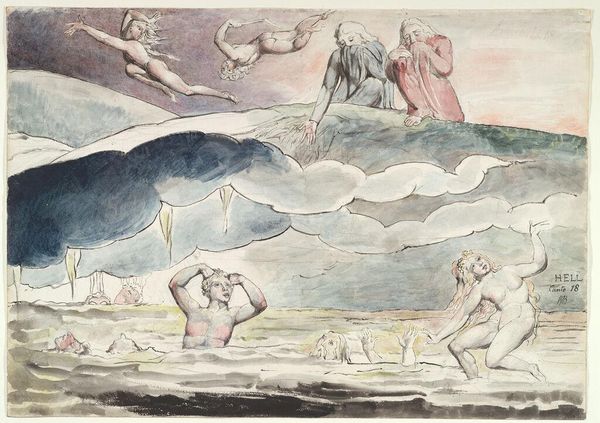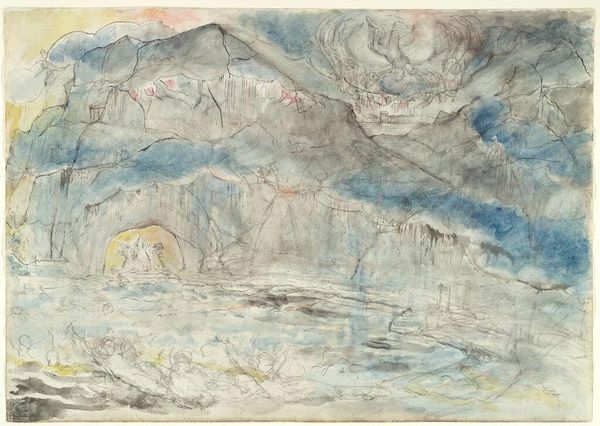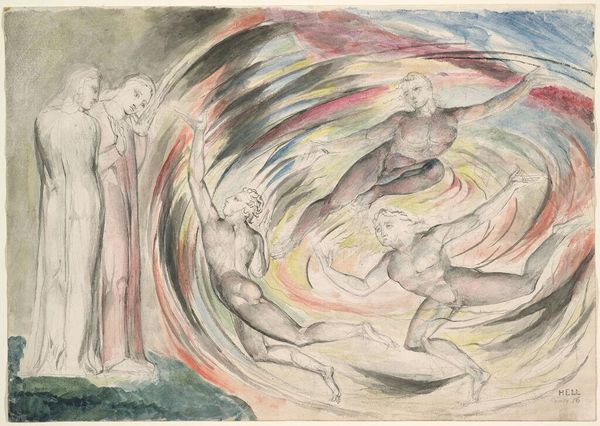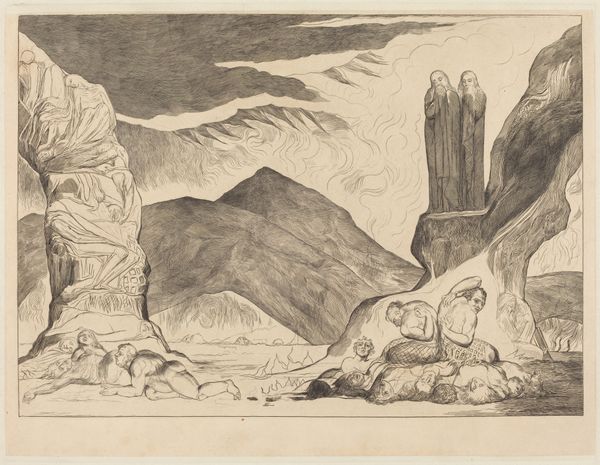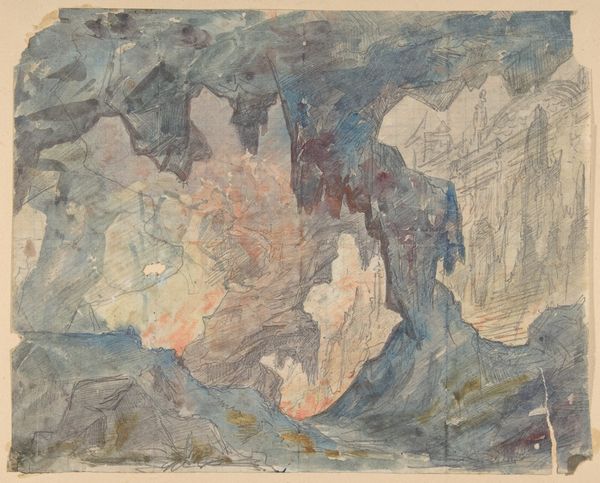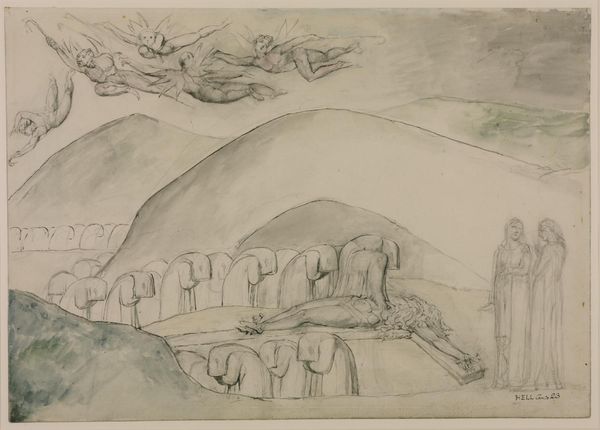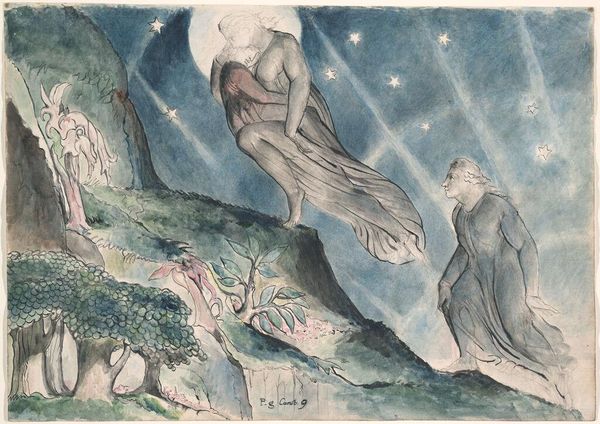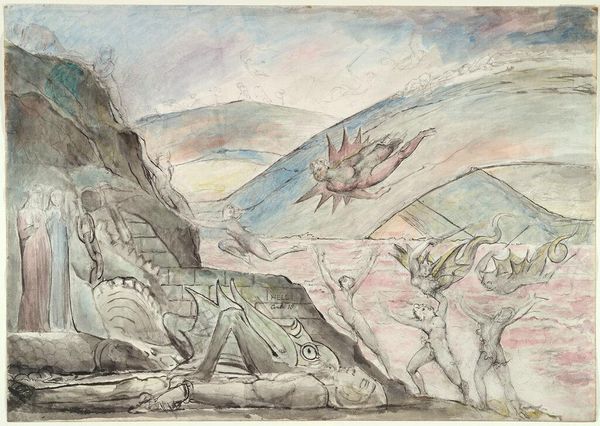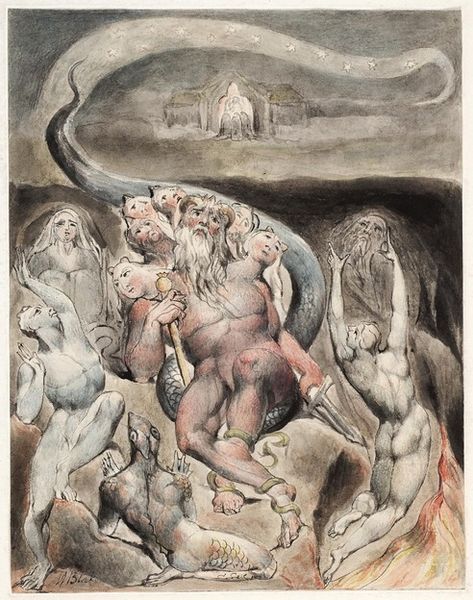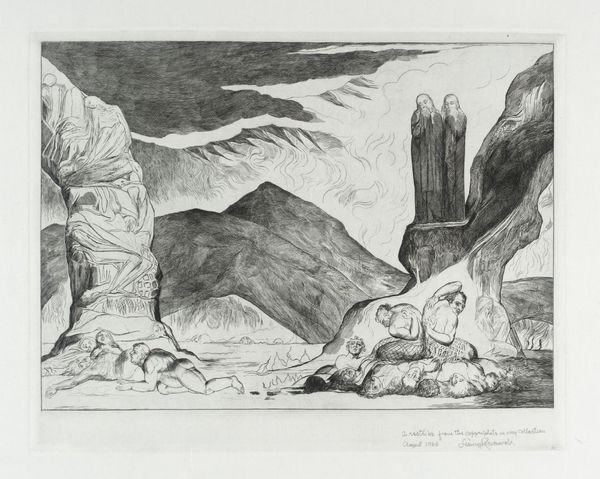
Dimensions: support: 372 x 527 mm
Copyright: NaN
Editor: This is William Blake's "The Pit of Disease: The Falsifiers," currently residing at the Tate. There's a real sense of desolate isolation in the composition, even with the figures present. What do you see as the key formal elements at play here? Curator: The stark contrast between the monumental rock formations and the diminutive figures immediately establishes a hierarchy. Note how the lines of the landscape converge, directing the viewer’s gaze towards the distant figures, emphasizing their separation and perhaps alienation. Editor: That's a fascinating point about the lines. So, is it all about the composition and how it directs our eyes? Curator: Indeed. The limited color palette also contributes. The muted tones amplify the somber mood, while the stark contrast between light and shadow models a psychological landscape of despair. What do you make of that? Editor: I hadn't considered the color palette in that light before. Thanks. Curator: A close study reveals the mastery of Blake's craft.
Comments
http://www.tate.org.uk/art/artworks/blake-the-pit-of-disease-the-falsifiers-n03362
Join the conversation
Join millions of artists and users on Artera today and experience the ultimate creative platform.
Dante and Virgil have arrived at the circle of Hell inhabited by ‘falsifiers’ such as forgers. They are tormented by numerous diseases. Blake used a red lake, probably brazilwood, and a gritty vermilion red to show the flames of Hell. These pigments have very different working properties, and are not easy to use in thin washes in gum medium. He preferred to use vermilion whenever a blood red or a living flesh tone was required. Here he has used it for parts of the diseased bodies of the two falsifiers at the right, which are raw with scratching. Gallery label, August 2004
